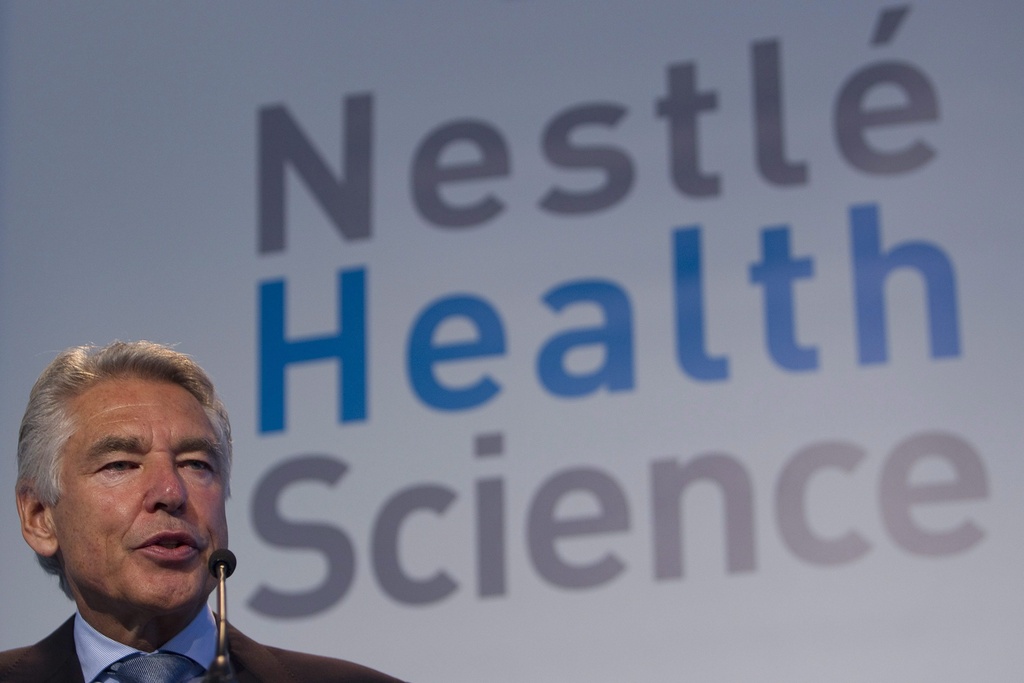
Nestlé to expand medical nutrition business

The Swiss-based food giant, Nestlé, has announced a major initiative it claims will prevent and treat health conditions such as diabetes, heart disease and obesity.
Nestlé says it will invest around $500 million (SFr491 million) over the next decade in the sector. However, analysts say the multinational will have a tough time overcoming regulatory hurdles and having its products meet expectations.
The firm said on Monday that it hopes to “pioneer a new industry between food and pharma” through the creation of a new subsidiary, Nestle Health Science, and a research and development centre at the Swiss Federal Institute of Technology in Lausanne (EPFL).
Nestlé Health Science, which will be operational from January 1, 2011, will incorporate and expand the existing global Nestlé HealthCare Nutrition business, which had a turnover of SFr1.6 billion ($1.63 billion) in 2009. Growth figures remain vague at this stage, however.
At the EPFL, the Nestlé Institute of Health Sciences will have a staff of up to 100 people to research nutritional strategies to improve health and longevity.
Nestlé says healthcare systems around the world are struggling to cope with the impact of chronic conditions such as heart disease and obesity.
“The combination of health economics, changing demographics and advances in health science show that our existing healthcare systems, which focus on treating sick people, are not sustainable and need redesigning,” Nestlé Chairman Peter Brabeck told reporters.
According to PriceWaterhouseCoopers, by 2015 three per cent of the world’s gross domestic product (GDP) could be lost due to chronic diseases like diabetes, cardiovascular disease and obesity.
“It is our conviction that disease prevention will have to play a much bigger role and in this sense personalised healthcare nutrition will become the first and most efficient step,” said the Nestlé chairman.
EPFL President Patrick Aebischer said he was convinced by this approach.
“Prevention is much better via nutrition than by using drugs, as it’s a lot easier to develop and less prone to side-effects,” he told swissinfo.ch.
KitKats to wellness
Nestlé first entered the nutrition market in 1986. Since then the maker of Nescafe and Nespresso coffee, KitKat chocolate bars and Haagen Dazs ice cream has been advancing into the high-margin sector of foods with health-benefit claims.
In the last three years it has made a number of acquisitions in the area, including the entire medical nutrition unit of the Swiss pharmaceutical firm Novartis and British company Vitaflo, which makes food for people with inherited metabolic disorders.
According to the market research firm Euromonitor International, the global health and wellness market sector is currently worth $594 billion. Sales of “functional” or “fortified” foods in western Europe are expected to grow 19 per cent over the next five years, compared with 10 per cent for packaged food.
Many food companies are investing heavily in R&D, frequently rolling out new products claiming to have general health benefits, such as lowering cholesterol, like Unilever’s Flora products, or helping healthy digestion such as Danone’s Actimel, but “only a few have directly target medical conditions,” Ildikó Szalai, a packaged foods analyst at Euromonitor, told swissinfo.ch.
Obstacles
“But any new Nestlé products, if intended for the general consumer market, will have to overcome a number of obstacles, from tighter health claim regulations to consumer education and require substantially higher investments,” she added.
Nestlé is entering a tough area, echoed Shane Sterling, a writer for Nutraingredients.com, a food and nutrition trade magazine and online site.
“Companies have to be seen to be doing something about health and nutrition, but there are lots of doubts about what works. It’s difficult to prove the benefits,” he explained.
Regulators are increasing scrutiny of the food industry’s health-benefits claims. Danone, whose medical-nutrition unit had sales of €925 million in 2009, withdrew applications with the European Food Safety Authority for its Actimel yogurt drinks’ health claims in April, saying it wants clarity on rules.
“Given increased regulatory pressure we assume an increased scientific focus to back health claims on food products and Nestle should benefit given its resources,” Kepler Capital Markets analyst Jon Cox told the Reuters news agency.
Alain Golay, an obesity expert at Geneva University, welcomed Nestlé’s announcement: “Finally, the food manufacturing business is doing something about nutrition to reduce the secondary effects of its processed foods.”
But Golay questioned the marketing strategy behind this initiative.
“There’s certainly a desire to create a good impression, especially as attention is shifting now from the cigarette industry to the food industry,” he told swissinfo.ch.
The Nestlé group had annual sales of over SFr100 billion francs in 2009, while its existing HealthCare Nutrition unit had a turnover of SFr1.6 billion.
The new Nestle Health Science subsidiary will be run at arm’s length from its main food, beverages and nutrition activities, the group said, and will incorporate its HealthCare Nutrition unit.
Nestlé spent SFr2 billion on research and development in 2009. It has about 5,200 people from over 50 countries working in its research centres, and the company cooperates with some 300 external research institutes.
Emmanuel Baetge, former chief scientific officer of ViaCyte, a San Diego, California-based company that’s developing diabetes treatments from stem cells, will lead the research institute at the EPFL.
Nestlé is already involved in life science initiatives at the EPFL via its funding of the “Energy metabolism” and “Brain development and plasticity” chairs.

In compliance with the JTI standards
More: SWI swissinfo.ch certified by the Journalism Trust Initiative



























You can find an overview of ongoing debates with our journalists here . Please join us!
If you want to start a conversation about a topic raised in this article or want to report factual errors, email us at english@swissinfo.ch.